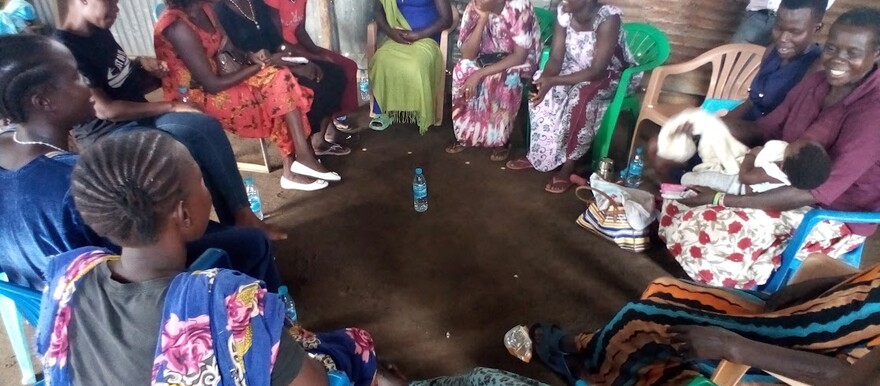Inhabitants of the Gumbo-Shirikat suburb in Juba have said they are concerned about the outbreak of diseases due to poor sanitation in the area.
Located on the east bank of the River Nile, the area houses an estimated 3,000 households, most of which do not have toilets prompting many residents to practice open defecation.
Speaking to Radio Tamazuj, Akou Joyce, a resident of the area, said she is worried that with the start of the rains, families will be exposed to diseases because water will be contaminated.
“The failure of the ministry of land, housing, and public utilities to demarcate the area has hindered us from digging pit latrines,” Akou said. People just defecate in plastic bags and dump them outside which is risky for children who like playing in stagnant water when it rains.”
According to Akou, the feeder roads in the area have also not been planned.
“Women are suffering here because our roads are not demarcated or worked on and movement will be difficult when it rains,” she said.
Another resident, Christine Nakide, confirmed residents dispose of human waste in polythene bags that contaminate the environment. She however attributed the lack of toilets to poverty, saying the people in the area, especially the women, cannot afford to construct them.
“This area is not demarcated so we have serious challenges,” she said. “Also, if you do not have money, you cannot build a toilet.”
According to the World Health Organization (WHO), people who are exposed to contaminated water and poor sanitation are at risk of being exposed to diseases such as cholera, diarrhea, dysentery, hepatitis, typhoid, and polio among others.
Meanwhile, Dorothy Drabuga, the executive director of the Women Foundation for Humanity, a women-led organization that fights for the rights of women to own land, said the area is not demarcated because it is contested.
“Indeed, when you take the whole of Shirikat, you will find that most of the land is not demarcated,” she confirmed.
Drabuga, who is also a member of the Greater Equatoria Land Alliance, pledged commitment to work in collaboration with the state authorities in pushing for the land to be demarcated.
Responding to the issue, the Central Equatoria State lands minister, Raymond Laku, refuted claims that the area has not been demarcated and zoned. He said three-quarters of the area is being demarcated and that the only areas not demarcated are those allocated to some companies and individuals for investment.
“There are a lot of issues but in Gumbo, the other side is demarcated and the northern part is not,” he said.
On her part, Jannet Michael, the director general for nursing and midwifery services who is also the acting director general for primary health care in the national health ministry, described the situation in the Gumbo-Sherikhat as dangerous and likely to cause water bone diseases.
“My comment on that is that sanitation is a joint responsibility. Personal or individual responsibility is there and the government’s responsibility is to supplement,” she said. “The first responsibility is an individual responsibility, ensuring that you live in a healthy environment. If I have a home, I must have a toilet.”
“From a medical perspective, I want to say it is hazardous because as the rains begin, we are going to have water and air bone diseases,” she added.




